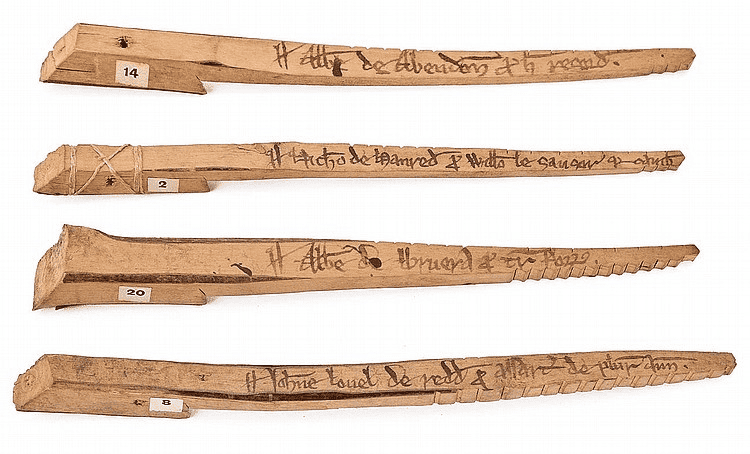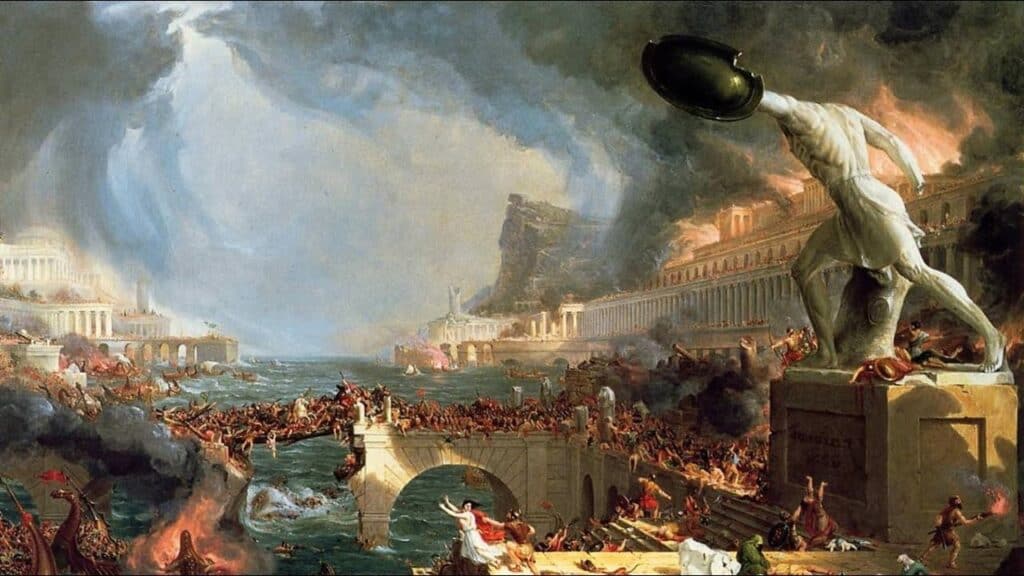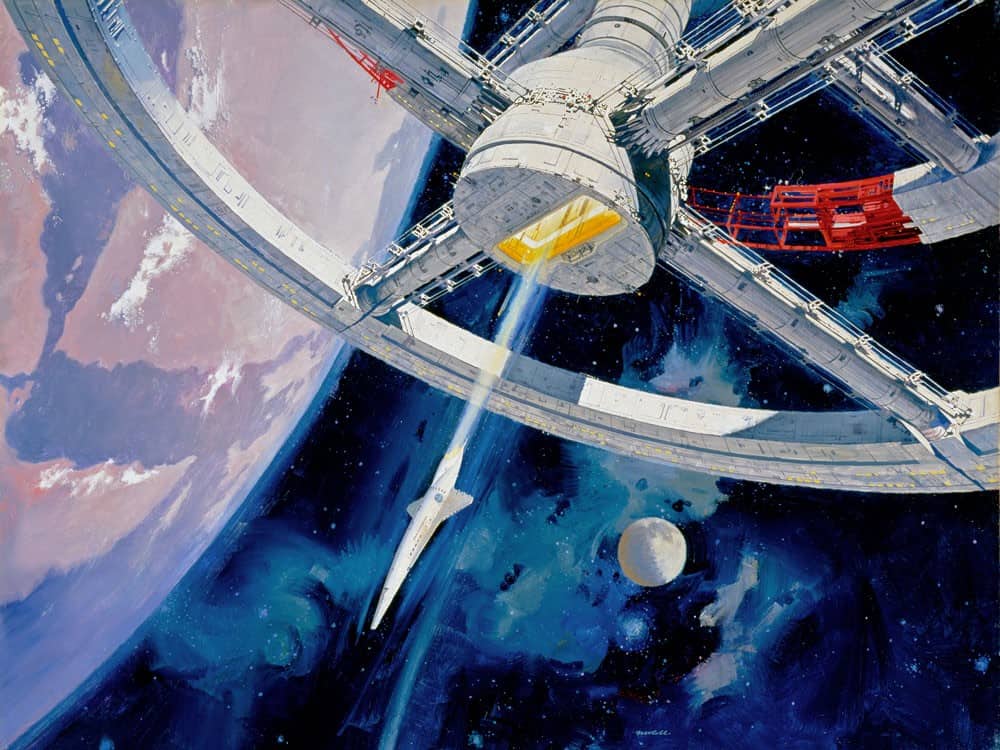For many of us—even these with an economics background—accounting and record-keeping are of little curiosity when exploring the nice mysteries of the previous. But, they’re extraordinarily very important parts of human civilization. They function the spine for monitoring commerce, sustaining financial stability, and preserving information for the reason that earliest cases of commerce. From primitive tally sticks to the subtle proof-of-work-based (PoW), unbounded blockchain expertise of at this time, the evolution of accounting strategies displays the progress of society in its quest for accuracy, safety, and permanence in recording info. Nonetheless, all through historical past, important quantities of knowledge and historic information have been destroyed or forgotten, impacting our understanding of the previous. Fortunately, the absolutely scalable BSV blockchain presents new potentialities for overcoming these historic vulnerabilities.
One of many earliest strategies of accounting dates again 5,000 years in the past to Mesopotamia. The traditional Sumerians used clay tokens to characterize commodities and file transactions, an enchanting parallel in a digital context with blockchain tokens at this time. These tokens ultimately led to the creation of clay tablets inscribed with cuneiform script. This early writing system allowed the Sumerians to trace items and funds, laying the groundwork for extra complicated accounting methods and the very foundation of the Sumerian and, ultimately, Babylonian civilization.
Concurrently, tally sticks had been utilized in numerous elements of Europe. A tally stick was a easy piece of wooden with notches reduce into it to indicate portions or values. For instance, a farmer would possibly owe a certain quantity of grain to a service provider, and each events would hold matching halves of a break up tally stick. These notches acted as a foolproof file that neither occasion may alter independently, thus serving to to forestall fraud and disputes. The tally stick system continued in England into the early nineteenth century.

Whereas these early types of accounting could seem rudimentary, they had been efficient. The tally sticks and clay tablets represented extra than simply commerce; they had been devices for establishing belief between events. This trust-based system set the stage for the extra superior types of bookkeeping and record-keeping that emerged through the Renaissance.
In the course of the late Center Ages, a significant leap occurred with the introduction of double-entry bookkeeping in Italy. This method, created in 1494 by Luca Pacioli, a very good pal and flatmate of Leonardo Di Vinci, revolutionized the sphere of accounting. Double-entry bookkeeping offered a scientific strategy to recording monetary transactions. Because of this every entry had a corresponding and reverse entry. This technique not solely allowed for extra correct monetary statements but additionally laid the muse for contemporary accounting practices.
The emergence of double-entry bookkeeping coincided with the expansion of commerce and commerce in Europe. As enterprise networks expanded, so too did the necessity for dependable information. By the point of the Industrial Revolution, bookkeeping had change into a necessary a part of financial and enterprise practices, supporting the fast enlargement of factories and enterprises.
Regardless of these advances in record-keeping, historical past has witnessed a number of giant information losses. The destruction of the Library of Alexandria, one of many historic world’s biggest facilities of studying, is one in every of humanity’s biggest losses. The Library of Alexandria was a repository of texts from throughout the recognized world, together with works on philosophy, science, literature, and arithmetic. Repeated fires and battle led to its decline and destruction. This loss meant numerous works, together with historic information and early scientific information, had been irretrievably misplaced.

The destruction of the Library of Alexandria serves as an emblem of the fragility of human information. Comparable cases of catastrophic loss have occurred all through historical past. For instance, in 1241, the Mongol invasion of Baghdad resulted within the destruction of the Home of Knowledge, one other nice repository of information. Baghdad’s libraries had been thrown into the Tigris River, reportedly turning its waters black with the ink of numerous manuscripts.
The devastation of World Warfare II additionally had an affect on historic information. The battle led to the lack of archives, historic manuscripts, and artworks, notably in Europe. Plundering and the bombings of cities comparable to Dresden resulted in a major lack of information and cultural heritage. Equally, through the Nice Hearth of London in 1666, not solely had been many private and non-private information misplaced, however the hearth additionally created challenges in reconstructing the monetary historical past of many companies and people.
These occasions display the delicate nature of historic information. The lack of key paperwork and manuscripts leaves gaps in our understanding of the previous, stopping us from absolutely reconstructing historic occasions, cultures, and developments, displaying us the significance of discovering extra resilient methods to protect info.
The twentieth century noticed a shift from bodily to digital record-keeping. With the invention of computer systems, huge quantities of knowledge may be saved electronically, making organizing and accessing info simpler. Nonetheless, this shift additionally launched new challenges, such because the dangers of hacking, corruption, and destruction. Centralized databases, whereas environment friendly, are susceptible to single factors of failure, making them vulnerable to loss or manipulation.
The BSV blockchain is an answer to those points. Blockchain is a decentralized ledger system that information transactions in an immutable and safe method. Every block is linked to the earlier one, forming a series that’s proof against tampering. This decentralized mannequin eliminates the dangers related to centralized methods by distributing information throughout a number of nodes, guaranteeing that no single level of failure can compromise all the ledger. BSV scales these blocks massively to make sure that information of every thing may be hashed and verified on chain immediately whereas remaining personal.
The rise of blockchain marks a major development in overcoming the vulnerabilities of conventional record-keeping. Nonetheless, blockchain alone can’t fully forestall the lack of information and information within the occasion of a world disaster. To deal with this challenge in the long run, there may be the potential of creating digital archives in house.
Digital archives saved on satellites or space-based platforms provide a technique to protect info past the attain of terrestrial disasters. These archives may retailer copies of important information, historic information, and cultural heritage in an setting shielded from battle, hearth, and environmental decay. Initiatives just like the Lunar Library and the Arch Mission Basis are already exploring the feasibility of sending information repositories to the moon or deep house, making a “backup” of human civilization.

The mixture of blockchain and space-based archives presents an attention-grabbing imaginative and prescient for the way forward for record-keeping. Whereas no system is fully secure from destruction, sooner or later sooner or later, this strategy may scale back the danger of dropping precious info even within the occasion of a catastrophic catastrophe on Earth, presumably preserving humanity’s collective information for future generations.
It’s enjoyable to start out from the previous to challenge what may be doable sooner or later, and whereas the historical past of accounting and record-keeping may not be probably the most thrilling topic, it’s a necessary story of each progress and loss. From utilizing tally sticks to a totally scalable proof-of-work blockchain, we have now all the time sought to enhance the accuracy and safety of recorded info. The losses of historic information, comparable to these destroyed within the Library of Alexandria, function stark reminders of the fragility of information and push us in the direction of ever extra resilient and everlasting methods of recording and preserving, guaranteeing that future generations can entry and construct upon the achievements and information of the previous.
Watch: Blockchain & Metanet’s function in combating pretend information
title=”YouTube video participant” frameborder=”0″ enable=”accelerometer; autoplay; clipboard-write; encrypted-media; gyroscope; picture-in-picture; web-share” referrerpolicy=”strict-origin-when-cross-origin” allowfullscreen=””>

